Hello and welcome to another audio version of Burnt Toast!
Audio newsletters are like podcasts in your email. You can listen to the episode right here and now by pressing play, or you can add it to the podcast player of your choice and listen whenever, by clicking that “listen in podcast app” link, above. And just in case you don’t like listening (or that’s not accessible to you), I’m including a full transcript (edited lightly for clarity) below.
Today, I’m really thrilled to be chatting with Nyemade Boiwu and Janet Conroy-Quirk, who are the creators of the National Plus Guide. Welcome.
Nyemade
Thank you for having us.
Virginia
Thank you so much for being here. So why don’t we start with each of you telling my listeners just a little more about you, your background? And what drew you to doing this work?
Nyemade
Sure! This is Nyemade, I actually created the National Plus Guide just off of my own experience. I had moved to a new town from Florida to Delaware, and I was trying to find a new doctor, which anyone who lives in a larger body or marginalized body knows can be difficult sometimes. Just finding someone who doesn’t have that fatphobia. So I found myself just wishing there was somewhere I could go for recommendations or see who other people would suggest in that area. And there wasn’t anything like that, so I figured I should try to create something.
Originally, I was thinking about just doing it for that purpose, specifically doctors, but then I’m like, well, there are so many areas where, you know, sometimes we struggle to find the right thing. I know, like if my friends want to go out, I pull up Yelp to look at pictures of the restaurant, see what the seating is like, what the stairs are like, things like that. So I’m like, it’d be so great if there was a place where people could just go to get all that. So that’s where the idea came from. And that’s basically what we’re trying to build!
A little bit about me, I realize I totally skipped over that.
Virginia
No worries!
Nyemade
Little bit about me: I work full time at a bank, but I do a lot on the side as well. I do a lot of advocacy around mental health and mental illness, I volunteer with Nami [National Alliance on Mental Illness]. I also do communications stuff, I do a lot of IG Lives: I do self-love on Sundays, mental health on Tuesdays, and then whatever other topics come up in between. And then I have a show called More Than My Size that I do with my friend Alicia, where we’re just two larger bodied women living life. Because we feel a lot of times, when there is representation of larger bodies, it’s always like this depressed place, like, oh, we’re so lazy, or we’re not doing anything and blah, blah, blah. And we wanted to show some of us are out here kicking butt. So we started that show. So that’s on YouTube. So that’s what I do with my time! I talk a lot.
Virginia
I love it. I mean, that’s what you're supposed to do on a podcast. And I will definitely link to all of that in the transcript so folks can follow you in all of those places, because that sounds amazing.
Janet, tell us a little bit about yourself.
Janet
So I’m an MSW. I was a social worker in New York City for about 15 years working with different populations. I worked with homeless individuals, the older population. And then I kind of transitioned out of that, it’s a pretty high stress job. I started doing some writing and a lot of acting, and then I became involved in the fat positivity movement. I started to write about my experiences, in theater and in the world and a big body, and eventually went on to start doing more freelance writing. I was briefly the editor of a plus magazine that I’m no longer with, which was at least a good experience. So I have just been getting back into doing more acting, a lot more writing, and when Nyemade told me that she was working on this, I was so drawn to it, because I’d had the same experiences. In medical settings, of course, and also just in things like, you know, buying a wedding dress—I have a horrific story about that. Or just going to places like restaurants and being either physically not able to feel comfortable or being mistreated in some way. So it’s so important to me to be able to help create this database, this place where people can go and make sure that they’re going to be respected and comfortable and safe, is so important to me.
Virginia
It’s so important, and I’m so grateful to both of you for doing this work and for getting this project off the ground. I mean, this comes up all the time in my reporting and conversations with friends, exactly what you were saying about how I want to go to a restaurant, but need to do this sleuthing online and try to find photos of what the chairs look like. It’s so much added emotional labor that people are asked to do just to feel like they can be safe in their bodies out in the world. And it’s so important to challenge that. So you both touched on medical experiences, restaurants, what other types of businesses or what other like sort of spaces do you feel like this comes up that are really important to include in the database?
Nyemade
Ultimately, with the database, we want it to be both a mix of plus positive spaces, and then also highlight plus-sized business owners as well. Because you can shop anywhere and spend your money anywhere, I’m just big on spending it where it has a bigger impact, whether that be, you know, I’m Black, so I try to support Black businesses and women-owned businesses and plus businesses. So it’s a mix of highlighting that and then also highlighting, as you mentioned, places that are plus positive. So like, like bed and breakfasts, hotels, sometimes people don’t really think about that. But it matters: the bedding, the showers.
You said doctors, restaurants. Honestly, we should be able to live our life to the fullest, no matter what size we are. And for me, that’s what it boils down to. Maybe it’s because I’m big on reviews, like, I’m all over reviews on Amazon and Yelp and stuff, before I make decisions, I always want to try to make things easier and efficient where I can. So for me, having this guide, hopefully it grows into a space where people can just go hey, I’m traveling, like I love traveling, I’m going to this city, I can just pull it up real quick, or, you know, I’m moving, where I can pull things up really fast, instead of really having to not only search for the category I need, and then deep research into that to figure out if it’s plus positive or not like. I want to remove that extra step for peoples so it’s more streamlined, and it’s just as easy for us to find things as it is for our smaller counterparts.
Virginia
I was talking to a friend about going to Disneyland recently. And Plus Mommy has an awesome guide to being in Disney in a larger body and what you need to know about different rides and all these different components that you’re talking about. And that also just really struck me: Disney World should be a place for everybody, it shouldn’t be a place where you feel like you might not fit. That’s ridiculous.
Janet
We have a recreation section, too. So it covers, you know exactly what you’re talking about, like amusement parks, but then also theaters and camping sites and things that you just don’t think about and realize, I need to know about that. So that’s in there, too.
We also included salons and places for personal services. And we want to include plus events, and groups that gather in different parts of the country. So we’re working on that too, as well as plus positive media. So, you know, maybe that could look like theater that is very, very, progressive in their casting. I mean, that’s maybe a little further down the road, but I think it’s probably related and would definitely fit in so. There’s a lot of categories. And we’re hoping more people will come up with different ideas and send more stuff to us. We even thought about a section for kids. You know, like for camp, I know of a couple that are really devoted to building up young people, not focusing on size. Because I know people who’ve gone to camps and had an awful experience.
Virginia
Uniforms and clothes for kids is also really tough. A friend of mine, I’ve written about this in the newsletter, recently, her daughter’s in a bigger body and trying to find softball uniform pants that fit. They were all slim cut softball pants for kids. I mean, it’s just mind boggling. Then when we talk about, you know, this sort of stereotype that kids in bigger bodies don’t play sports, it’s like, well, yeah, if they can’t wear the uniform! If you’re not literally not making a space for them! How does this perpetuate this cycle? It’s really messed up.
So I love all of these ideas. And I really love spotlighting plus creators, makers or, you know, focusing on those businesses that people can support. Because I think that’s a huge part of this conversation, too. Something I think about a lot as a writer and a journalist is which stories are not getting told, who is not getting to tell their own story. And certainly, we see this in publishing, you know, when you look at books on body positivity, a lot of them are written by thin white women, and that’s something we really need to change.
Nyemade
Yeah. And besides just having the directory, it’s definitely something that we want to grow into a community, as well. So we have the IG page. We try to repost interesting things that we see. We do like a Man Crush Monday, we shout out a business person on Tuesdays, Woman Crush Wednesday, just to highlight and promote people.
We also have a newsletter that’s going to come out. So we’re always going to be looking for people who want to write. Sometimes it’s hard breaking into the social sphere, it sometimes feels like a bubble that you can’t quite get your foot into. So you know, anywhere where we can make it a little easier. Everyone wants the person with like 1000s and 1000s of followers, but like, who’s taking a chance on the person with like, 100 followers, who might be just as brilliant as the person with 1000s and 1000s of followers, we just don’t know about them yet? So I really want to create a space for anyone plus sized or marginalized to be like, hey, I have this great idea, I want to try this series on your page, or be a part of the newsletter or something like that, just to help give them that extra platform, that space. So we also try to do lives, as well, just talking to different people to spread information about them. And we’ve been also trying to highlight plus love, just because so it came to me because I was on the page, you know, Me And Somebody’s Son? Have you ever seen that?
Virginia
I don’t think I have—
Nyemade
They’re just like, cute couple pictures. I was scrolling and scrolling and scrolling and not seeing any plus size. I saw maybe like one. But there’s love for us out there. I mean, I know my DMs aren’t dry. People like plus size women. People who are plus size find love with slim people, other plus size people, other sexes, but where do we see that? We don’t really, I mean, I don’t know if you can really think of anything. But I can’t really think of a place where it’s like, oh, plus love. I think that matters for everyone, but especially for younger people. You know, when I was younger—and also much slimmer than I am now—I remember thinking I was too big to find love, like, nobody really likes me. But that’s not true. That's a lie that society puts on us. And we kind of want to help show that that’s not true, help highlight and show and spread pictures of loving couples being happy. So whenever we scroll across one on IG, we try to repost it and share it. I think we’re gonna start trying to see if we can bring some couples in to do lives with us, just to talk about their relationship.
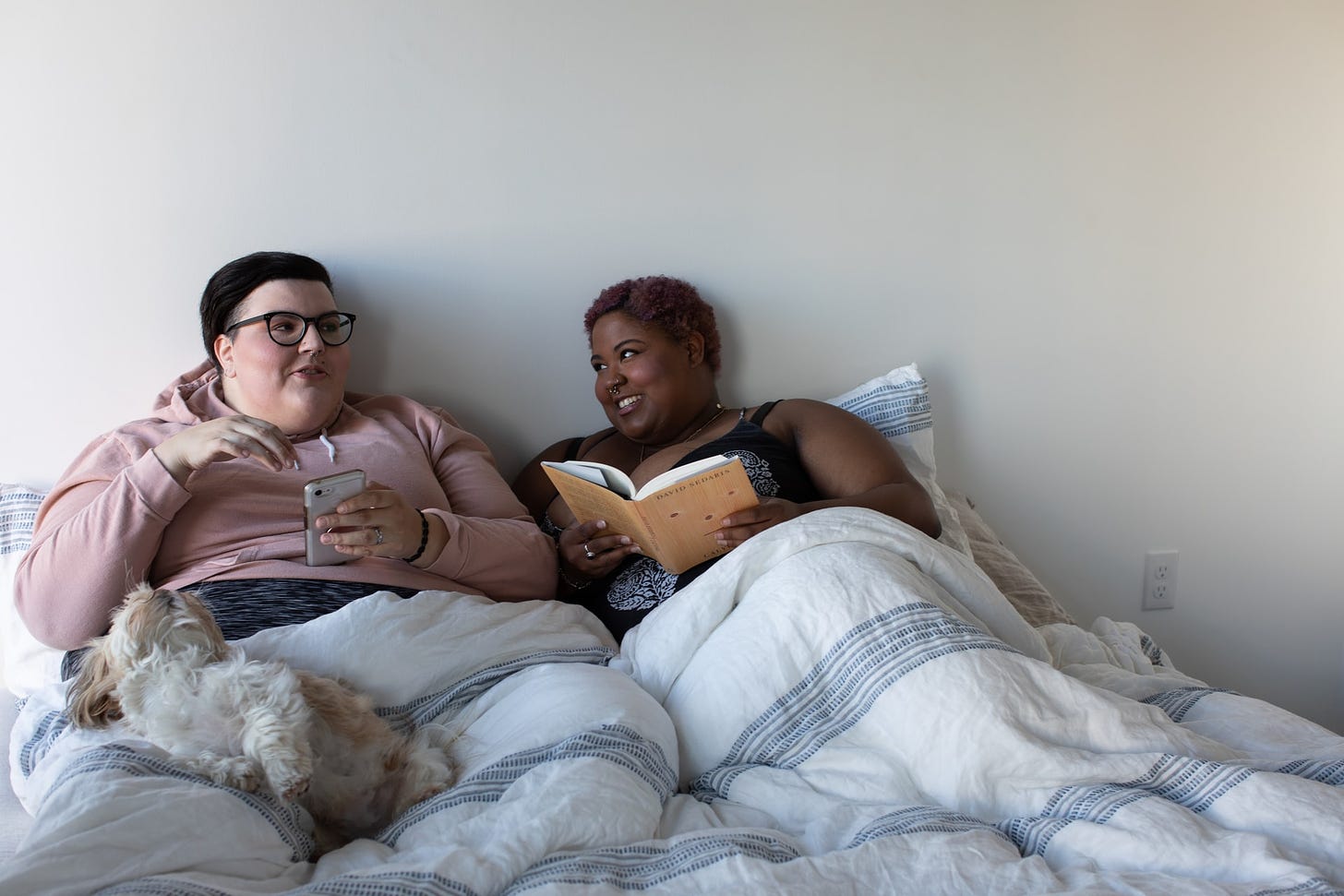
Virginia
I love that because you’re completely right, it’s not the default representation. And often when you do see a woman in a bigger body with, say, a thinner man, the commentary is very derogatory, like, what’s he thinking? And that’s crap. It’s not reflecting the real experiences of people in larger bodies, and it’s a terrible message to perpetuate. I love pushing back against that.
Just going back to what we were talking about in the beginning about the challenges of navigating these spaces. Obviously, the database is going to be a huge help to folks, but while it’s still building and we’re still kind of figuring out where are these safer spaces: Are there strategies that you have found to be useful when needing to advocate for yourself in a medical setting or the sort of online sleuthing you have to do to figure out if the restaurant is going to work? Are there other strategies along those lines that you can share? Because I’m sure some of my listeners have been navigating those kinds of spaces and hitting those same brick walls.
Nyemade
I’ll let Janet take this one since I shared a few of mine. If I think of any more, I’ll let you know.
Janet
Just recently, this was really helpful last weekend, I was going in for a general eye exam. Now, most people wouldn’t be nervous about that. But I just carry so much with me from being in any medical setting and having people not listen to me or assume that there’s going to be a problem because of how my body looks. So this person was recommended through a fat support Facebook group, and it was a little further away from my home than I probably normally would have traveled, but it was worth it. And I took the time to write something about my anxiety and about my past experiences. And they read it and they were ready for me and they were so accommodating. And it just made the biggest difference. I think that taking the time to communicate ahead of time is really so key. But also communicating afterwards.
Sometimes when things happen, and you’re mistreated in a restaurant, salon, or store, you don’t have your words ready. And sometimes it’s hard because as large people, a big stereotype is that we’re aggressive, or we’re angry. So getting into it with somebody in the moment can sometimes be detrimental. So, for instance, last year, my husband and I stayed at a hotel, and we loved it, everything was great. But we went down one night to get dinner at the bar to bring it up to our room (because it was COVID and you had to do that). And the bartender made a comment about how much food we had ordered. And it was really inappropriate and really rude. In the moment, I decided not to confront him and make a scene. But afterwards, I wrote to the hotel, and I wrote to the general manager, and I explained what happened. And he got back to me and was so kind and he acknowledged, he said, you know, my wife is plus sized. If anybody ever said that to her, I’d be so sad. And he handled the situation, and it was really effective. Sometimes it’s so hard to advocate in the moment, even though we want to. You don’t have to deal with it just then but dealing with it beforehand is a great strategy, and so is addressing it afterwards. So you always have a chance to go back and do it if you didn’t get the chance. And I think sometimes it’s even the wiser choice, because like I said, we, fat people, we are often seen as adversarial when we’re really just being assertive.
Virginia
Right? We’re really just saying what we need, like any person should be able to do. That’s such good advice. I think that makes a ton of sense. It just doesn’t always feel safe to speak up in the moment or you feel panicked and stressed and it’s hard to find your voice in that moment. So it’s great to think about following up afterwards.
Nyemade
Just to add to that really quick, part of it that there’s a level of shame we feel about our size, no matter how much work we do. I know I’m constantly putting in work to have self-love, self-acceptance, but we live in a society that’s told us our whole lives that our bodies are bad, our bodies are wrong. And not only that, that it’s our fault, that we look like that, no matter what your medical issue is, or blah blah blah genetics, it’s always like, well it’s your fault you’re fat. So I think that sometimes when we’re placed in situations where we don’t fit, or we don’t feel comfortable, while we know we deserve to feel comfortable like everyone else, there’s still a part of us that’s like, well, it’s my fault that I’m so fat, that this isn’t working or that they’re being like this. So I think sometimes it’s hard for us to stand up for ourselves. Or at least for me, maybe I’m saying us and I really just mean me.
Virginia
I think that’s a pretty universal experience.
Nyemade
Yeah. So sometimes that’s hard. That’s why I love Janet’s takeaway about sometimes it’s okay to wait and deal with it after if you don’t feel comfortable in that moment.
Virginia
Absolutely, that comes up too in my conversations with parents, you know, I think when we think about how to talk to our kids about these issues, that theme can come up. Because, if you’re calling out racism, or you’re calling out homophobia, like you can feel very confident in saying, that person is wrong. And this is the right way to do it.
But with weight stigma and fatphobia, because we’ve so internalized that idea that it’s our problem, it can be harder to say this is wrong, and it can be harder to push back against it in some way. There’s that nuance to dealing with this particular form of oppression that is really difficult because you have to kind of be navigating it for yourself, as well as navigating the message the world’s giving you.
The last thing I wanted to chat about a little bit is the idea of thin allyship. I often hear from readers in straight-sized bodies, saying, you know, I want to be a better ally. I want to support the plus people in my life and you know, what should I be doing? How can I be helpful? I just wondered if y’'all had any thoughts about that. Are there ways that straight size folks have showed up for you? That’s been helpful? Are there things that people have done that have been really not helpful, like, don’t do this?
Nyemade
I have a few. First thing is most fat people know that they’re fat. So they don’t need you to tell them that they’re fat.
Virginia
Amen.
Nyemade
It’s not helpful in any way, shape, or form. I’ve never had someone tell me that I was unhealthy in my comment section, and then suddenly, I was like, Oh, my God, I should change my life! It doesn’t work that way. So if you want to be an ally, definitely stop with that.
I think first and foremost is treating the people in your life, no matter what their size is, like they’re a normal size person. They’re just a person, which we are. I do think as far as being a good ally, family or friend, know what the person that you’re with is dealing with. I don’t fit in booths, I haven’t for a while. So if I’m going out with my friends, I appreciate when they get a table. Because it’s actually one of those things where, because I get nervous about it, I try to get there early to make sure I ask for a table, because once my friends got a booth, and it felt horrible being like, oh, we have to move, or let’s pull up a chair. So just be aware of stuff like that, when you’re in spaces with them. How can you help to make them feel comfortable without them necessarily having to say something? Again, that shame I mentioned earlier might make it so they’re just painfully uncomfortable the whole time, because they’re not comfortable speaking up for themselves.
I also think anytime that you can advocate for larger bodies is so helpful. I say it all the time that people who, like if someone doesn't have respect for a certain type of person, whether it’s because of their race, gender, or size, they’re not going to hear the message from that person. So if someone doesn’t have respect for larger bodies, I could say, I deserve respect all day long. They don’t care, because they already don’t have respect for me. But they might hear a slimmer person saying, hey, even though that person is larger, they still deserve respect. And I say this all the time, whether I’m talking about larger bodies, or whether I’m talking about racism, if you’re part of the group, that is in a way oppressing or just being a problem for the other group, like it really takes your voice to make a huge difference. Because we can stand on the outside saying let us in all day long, but if you’re already in, it’s a little bit easier to open that door and let people in. So use your voice to advocate for them, whether they’re there or more importantly, when they’re not there.
Virginia
Yes, agree. And that’s huge. Janet, anything you want to add?
Janet
I completely agree, all of that is so so perfect. I would also just say, you know, and this is a little sticky, because, you know, we’re all victims of diet culture, we know that. And it’s normal that everybody at every size has some feelings about their body. I do always try to help people remember that when you are not in a fat body, and you’re not experiencing the effects of that, and you complain about your own body, you comment on having gained weight, or how you feel unattractive, your bigger friends are hearing you and what they’re hearing is that you have some feelings about their body. Now that may sound harsh. And of course, we may say, that wasn’t my intent. Well, of course, it was not the intent. But let’s remember the impact. So I would say that’s something that we should all strive for. I’m a big fan of eliminating the talking about physical complements in any way. And I’m working really hard on that.
I think also just learning a little bit more about, you know, what representation looks like. Something that really helped me and really touched me, I was very, very affected by it, was when I was working with the plus size magazine, a bunch of friends bought some subscriptions. And a friend of mine sent me a photo of her two little girls who were three and four, reading—looking at the magazine not reading it—but looking at, you know, pictures of big women in bikinis, and it was so wonderful. And I thought, this is how we’re going to fix things in the future. They’re already seeing that that body belongs in a magazine. That’s great, and it’s wonderful. And it’s a lot of progress. Showing up and learning about the movement and learning why things are offensive, what fat phobia is and what it looks like, is so important.
And in terms of friendship, listening, thinking about sitting at a table rather than a booth; my friends have become very good about making sure that temperature wise I’m okay because I get very, very warm, and then I sweat. And then I get even more nervous about the sweating. My friends are not the ones who are going to be like, oh, let’s sit outside, it’s only 85 degrees. No we’ll go inside because she’s gonna be uncomfortable. And it’s not the world’s biggest deal. And I appreciate that a lot.
Virginia
It really is these small ways of being thoughtful that I think would be just a courtesy, you want to extend to anyone in your life. You’re just sort of seeing people for who they are and what they’re dealing with and how to meet them with what they need. But it is a sort of a flexible form of thinking that people haven’t been taught, you know, when we’re teaching our kids manners, we kind of forget to cover this stuff.
Nyemade
Just to piggyback off of that, it impacts how much we go out as well, right? Not everybody who’s in a larger body is introverted, but some of us just because of the uncomfortableness, like Janet said, like you’re sweating, or you’re walking or whatever, it’s just easier to stay home than deal with that. I remember I went out with some friends once, and they were like, well, it’s not that far of a walk from this point to that point. I was like, well, is it normal size, not that far of a walk or like, for me, not that far of a walk, because that is a walk. So thinking about stuff like that and like, I have my friends who I know are almost like safe spaces for me, like we can hang out, I’m not going to be embarrassed if I’m sweaty and I know, they’re not going to plan something or do something that might make me feel uncomfortable or where I might be embarrassed. So I think if someone’s listening with larger body friends, think about the activities that you’re inviting them to. Maybe there’s a reason they’re saying no. And it’s not always just because they don’t want to. I’ve had times where people have invited me to things and I’m like, that’d be so awesome, but I would be so miserable in my body. And again, like, that’s on me to work on my body and what I want to do, and blah, blah, blah. So I’m very much about body autonomy, whatever your goals are, whether it’s to stay the same or lose weight, whatever, that’s fine. But if you are trying to invite people into your space, just think about how their body would be in your space. And if you’re really making a space where they would feel comfortable saying yes.
Virginia
That’s a great tip. Yeah, we were buying some patio furniture recently. And I was like, oh, I need to really consider how accessible this furniture is for people. And that’s just a layer of thinking that we can all get used to doing and just, you know, would this work for somebody in a bigger body? I love that. And it speaks so well to what you both are doing with this project, trying to highlight businesses that are already doing this work and making these spaces for us. So amazing. Thank you so much.
Why don’t you each tell our listeners where they can find more of you, more of your work, follow you, support what you’re doing?
Nyemade
Absolutely. Definitely find National Plus Guide. That’s the main directory we’re talking about and trying to build up. We really want your suggestions, your tips, there’s a spot to go in there to either promote your business or recommend other businesses, and we’ll contact them to see if they’re cool being put in. So that is huge for us, spread the word on that, because there’s no way Janet and I are going to be able to find all the businesses in the country. We need your help. So please go to the website and try to add businesses or recommend businesses.
And then as far as me personally, I’m across all social media platforms as @thatafricanbutterfly. The best way to find me is on Instagram, which will lead you to all my other things. I also have a website, it’s being updated, but it’s still available now. Which is just www.thatafricanbutterfly.com and that gives you a bio and a linktree to all of my stuff.
Janet
My website is www.JanetConroyQuirk.com. It is under construction right now, like really under construction. On all other platforms, on Instagram, Facebook, Twitter, it’s just Janet Conroy Quirk. No hyphens. So you can find me there!
Virginia
It is a project. It’s a part time job managing social stuff. Well, thank you both so much for joining me. This was such a great conversation.
Nyemade
Yes. Thank you so much for having us!
Virginia
And thank you all so much for listening to Burnt Toast. If you like this episode and you aren’t yet subscribed, please do that. If you are a subscriber, thank you so much and please consider sharing Burnt Toast on your social media platforms or forwarding it to a friend.
Burnt Toast transcripts and essays are edited and formatted by Jessica McKenzie who writes the fantastic Substack, Pinch of Dirt. Our logo is designed by Deanna Lowe, and I’m Virginia Sole-Smith. You can find more of my work at virginiasolesmith.com or come say hi on Instagram and Twitter where I am @v_solesmith. Thanks for listening! Talk to you soon.



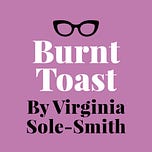

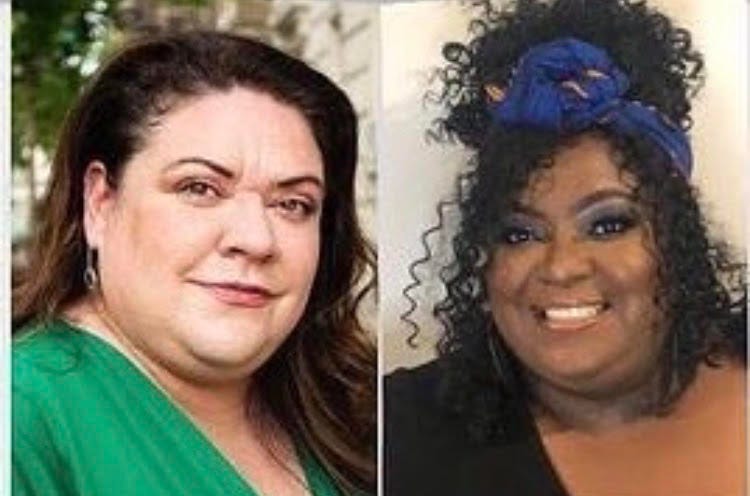
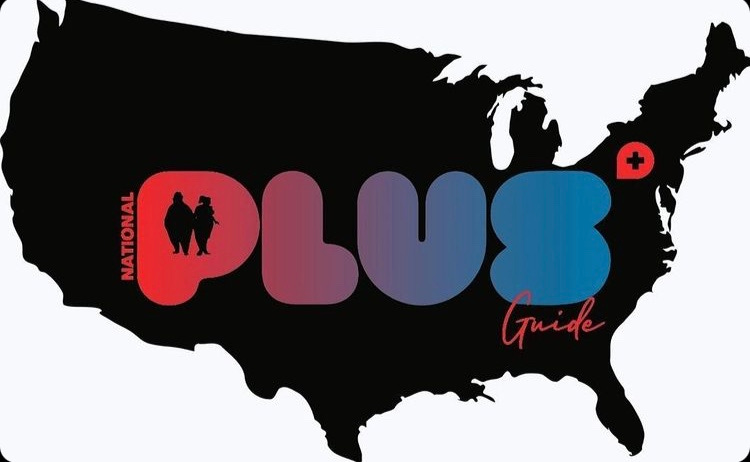

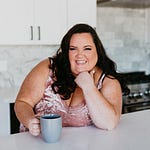
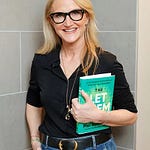
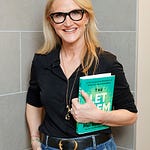
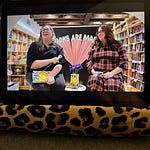

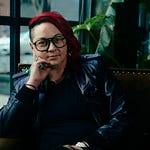


Share this post